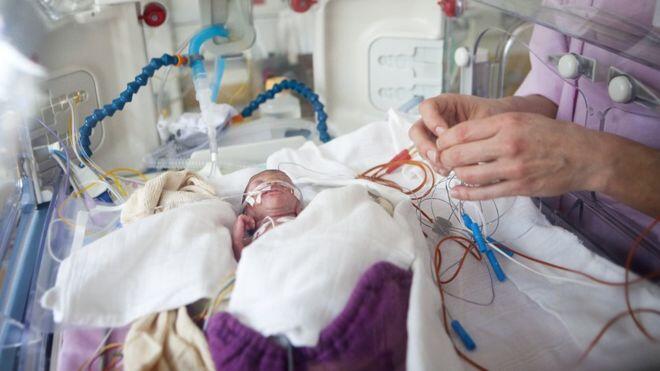More babies born extremely prematurely are surviving without neurological problems, according to a new study.
The study by Duke Health in the US and published in the New England Journal of Medicine looked at 4,274 babies born between 22 and 24 weeks.
Compared with those born a decade earlier, a larger percentage were now toddlers without signs of moderate or severe cognitive and motor delay.
Changes to care are being credited with the improvement.
About 30% of children included in the study who were born between the years 2000 and 2003 survived, but that rate increased to 36% for babies born in 2008 to 2011.
The proportion of survivors who did not have a neurological impairment rose from 16% to 20%.
The best outcomes were for children born at 23 to 24 weeks.
‘Encouraging’
Researcher Prof Noelle Younge called the findings “encouraging”.
“We see evidence of improvement over time. But we do need to keep an eye on the overall numbers, as a large percentage of infants born at this stage still do not survive.
“Those who survive without significant impairment at about age two are still at risk for numerous other challenges to their overall health.”
Full-term babies are born at 37 to 40 weeks.
Prof Michael Cotten, one of the other lead researchers, said changes in the culture of neonatal intensive care units were behind the improvement.
“We’ve taken a big focus on preventing infections, and there’s a lot more encouragement and support for the use of mothers’ milk than there was 15 years ago, which has also been linked to better outcomes.”
There has also been a decrease in infection rates in neonatal intensive care units over the past two decades, which Prof Cotten said was important.
The greater use of steroids in mothers at risk of premature birth to help the baby develop in the womb is also thought to have contributed to the increase in survival and fewer signs of developmental delay, he added.











